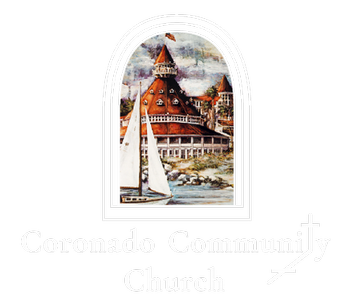I Kings 19:1-15
A Sermon by Pastor Eric Smith
Published On: June 19, 2022
A Sermon by Pastor Eric Smith
Published On: June 19, 2022
Elijah lived in the 9th century BC. That’s about 3000 years ago. He shows up in the Book of 1 Kings with no fanfare. He is called, the Tishbite – which means he was from Tish – but we don’t know where that was. We don’t know where Elijah came from.
He was a prophet. Today’s concept of who a prophet was and what a prophet did is a bit different than the original version. We tend to think of them as “ancient psychics.” Our impression is that ancient prophets foretold the future. There is some truth to this – a limited measure – but the prophet’s gaze was upon his own time – not some distant future. The prophets, including Elijah, spoke to and spoke for their people and, periodically, when their message included a distant vision or promise of God for the future, they spoke it in order to shed light on their present.
Their gift was the ability to see the truth of God in their own time. And… since the truth of God tends toward longevity… some of the words transcended their present and carried God’s truth into the future.
Sometimes it is unpopular to speak the truth. Think Mike Pence. The common characteristic of the prophets is that they had the character and the ethical compulsion to speak out no matter the consequences. Throughout history, when a people or a nation has chosen to follow a path that strays from the way of God there is pressure to align with the popular sentiment of the culture, rather than to speak out against it. We see that today.
Charismatic national leaders have always possessed the ability to take people places they would not otherwise go – spiritually, politically, and physically. Recall the Iraq war – that’s long enough ago to be safe to mention. At the outset, it was very unpopular to speak out against the ideas of those who led us into that war. Now the collective opinion, although not everyone agrees, is that going to war in Iraq was an ill-informed decision and probably a mistake.
The prophets saw such things in their time and spoke to them early on – while popular sentiment was still running contrary; so they often endured the condemnation of both the people and the leaders of their time. Prophets had to be courageous – it was just part of the job description.
Our prophet, Elijah, had several truth-telling encounters with Ahab, who was then the King of Israel. They were not friends.
King Ahab had wanted a certain piece of property with a vineyard owned by a man named Naboth. He offered to trade for it or buy it outright. But Naboth refused on spiritual grounds.
His reason for not selling the vineyard was because the land belonged to God who gave it to the tribes of Israel as an inheritance and it was to be kept within that tribe (Numbers 27:1-11, 36:1-12). In Leviticus (25:23) there is a complete prohibition against selling land. No deal.
So Ahab pouted about it, and his wife, Queen Jezebel, noticed. When she found out why her husband was upset she said to him, “Honey, don’t worry, I’ll take care of it for you.”
Jezebel arranged to have Naboth accused of cursing God and King – which, if it were true, required death. It was not true, but Naboth was accused and deemed guilty and stoned to death. So Ahab got his vineyard.
Elijah heard of it – and the injustice of it – and went to speak to Ahab. He told the king that he was accountable and would pay for this injustice with his life. It was pretty bold to speak out when the king had the military power and the support of his people.
Specifically Elijah said, “In the place where dogs licked up the blood of Naboth, dogs will also lick up your blood.” He didn’t try to make nice.
And… not long after this … Ahab did die – and the dogs did lick up his blood.
In the meantime, for this disrespect and a few others, the King and Queen wanted Elijah dead. So Elijah hid.
This is where the story of the reading starts.
Elijah was afraid and went into hiding in the wilderness. He was depressed and he said he wanted to die. The voice of God came to him – and sent him to an isolated spot on a mountain.
God said, “Go out and stand on the mountain before the Lord, for the Lord is about to pass by.”
Now there was a great wind, so strong that it was splitting mountains and breaking rocks in pieces before the Lord, but the Lord was not in the wind; and after the wind an earthquake, but the Lord was not in the earthquake; 12and after the earthquake a fire, but the Lord was not in the fire; and after the fire a sound of sheer silence.
Then there came a voice to him that said, “What are you doing here, Elijah?”
That question was put to Elijah from God twice in our passage… What are you doing here?
That question is our focus this morning.
Elijah’s life was about more than being depressed and hiding. Elijah had to get beyond where he was to become an advisor to the future kings of Israel.
The pivot point… the catalyst that began the change… was in the question…
What are you doing here?
Elijah had plenty of drama in his life… and the accumulation finally threw him… he was spiritually stuck. Insecure… afraid… and depressed. It happens to all of us in some measure at some time in our lives.
What am I doing here? … is a worthy inquiry for reflection and spiritual health. It’s a good question to ask even when you’re feeling good, because your life is precious… your life is valuable. You are a child of God, vested with spiritual power. Are you living like that? Or not-so-much…
Maybe you feel like the hymn says…
I am tired, I’m weak, I am worn
Through the storm, through the night
Lead me on to the light
Take my hand, precious Lord
Lead me home
Elijah said… take me home… just let me die. Nope…
Richard Alpert was a spiritual teacher, psychologist, and author. He introduced a generation to Eastern Spirituality. He is more commonly known to us as Ram Dass. He passed away three years ago.
In 1997, he had a stroke which left him with paralysis. He could no longer do all the things he had done. Yet he interpreted his stroke, what most of us would not necessarily see as something positive for our lives – he saw it as an act of grace. He spoke about this.
The legendary spiritual leader spoke from his wheelchair. The most powerful moment of his presentation was while seated in a beautiful garden area.
He had been speaking of his life and his plans; how “being stroked” as he put it, was not part of his plan… he laughed and said, my plans.
Then he waved his arm and said, but this …is a good moment. And he paused and gestured again… and this is a good moment.
What are you doing Ram Dass? He was just living the truth. This is a good moment.
And this is a good moment. And calling attention to the moment, recognizing how you are present in this moment is both centering and whole.
Where are we ever but in this moment? Yet, most of the time we’re somewhere else – in the past, or in the future, or just worrying about whatever we’re worried about…
Eckhart Tolle is another spiritual teacher. He shared this story…
A beggar had been sitting by the side of a road for over thirty years. One day a stranger walked by. “Spare me some change?” mumbled the beggar, mechanically holding out his old baseball cap.
“I have nothing to give you,” said the stranger. Then he asked, “What’s that you are sitting on?”
“Nothing,” replied the beggar. “Just an old box. I have been sitting on it for as long as I can remember.”
“Ever looked inside?” asked the stranger.
“No,” said the beggar. “What’s the point? There’s nothing in there.”
“Have a look inside,” the stranger insisted.
The beggar managed to pry open the lid. With astonishment, then disbelief, and then elation, he saw that the box was filled with gold…
It’s a decent metaphor for pointing you toward your spiritual nature. It’s there all the time, not hidden, but you might not see it.
Asking yourself… What am I doing here? Can be your own box-opening moment.
To see something new in your relationships.
To appreciate the gift of your life
To admire the Creation.
To give yourself to a cause.
Old Elijah had to see that his answers weren’t in the clamor and attention-getting displays around him… his answer wasn’t in the past, or in the future…
It wasn’t in the great wind,
it wasn’t in the earthquake;
it wasn’t in the fire;
but then sheer silence … quiet enough for him to hear the voice of God.
Whatever the clamor is around you – the noise of your past or anxiety about the future – whatever it is you fear – stop and listen to the silence… and, just like Elijah… the guidance of the spirit will be there with you…




